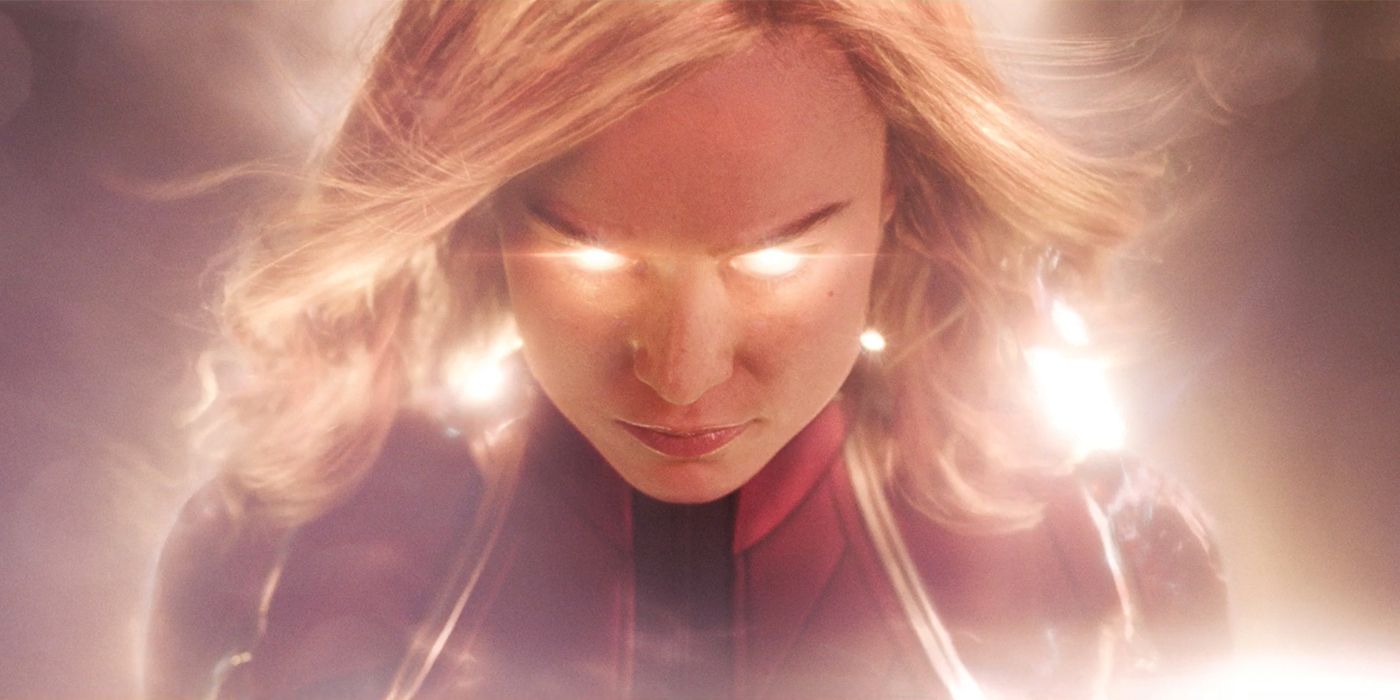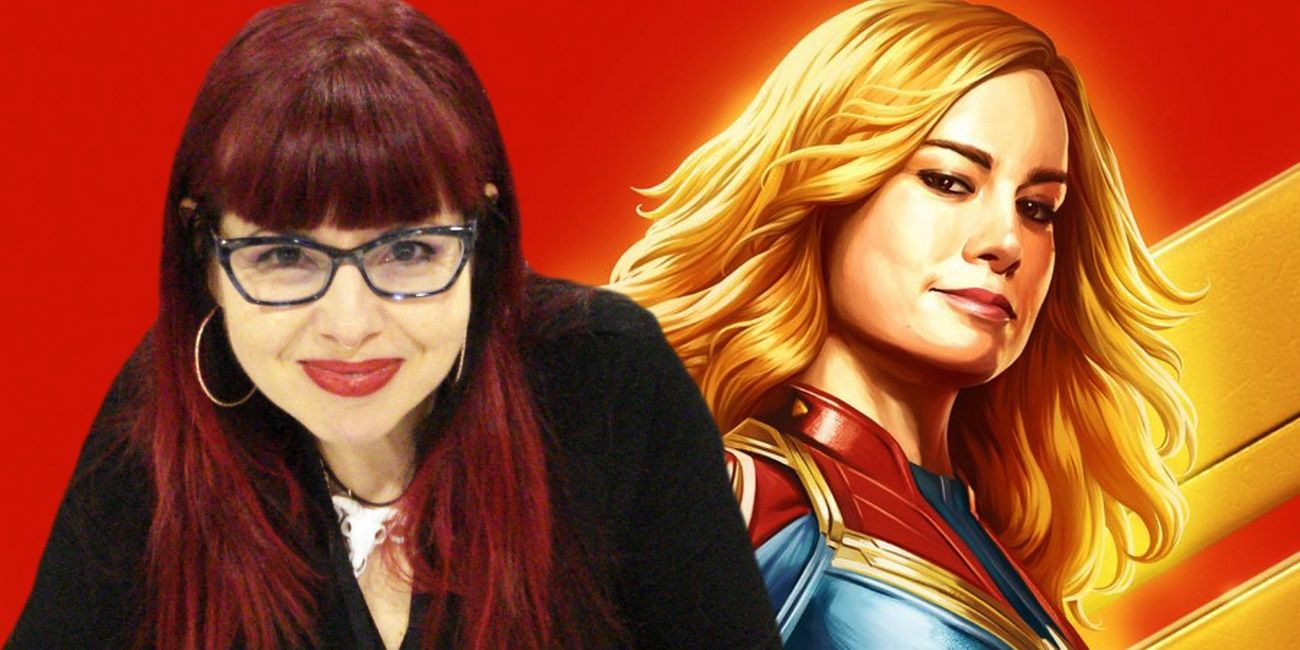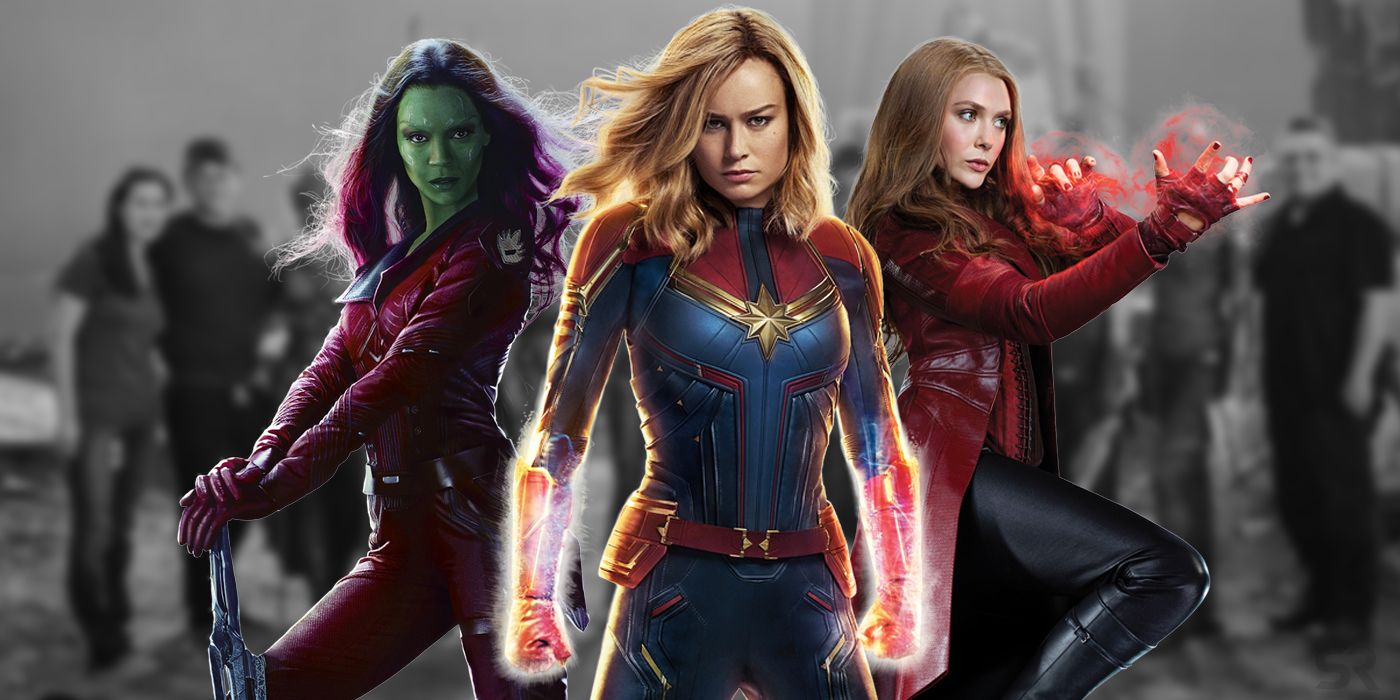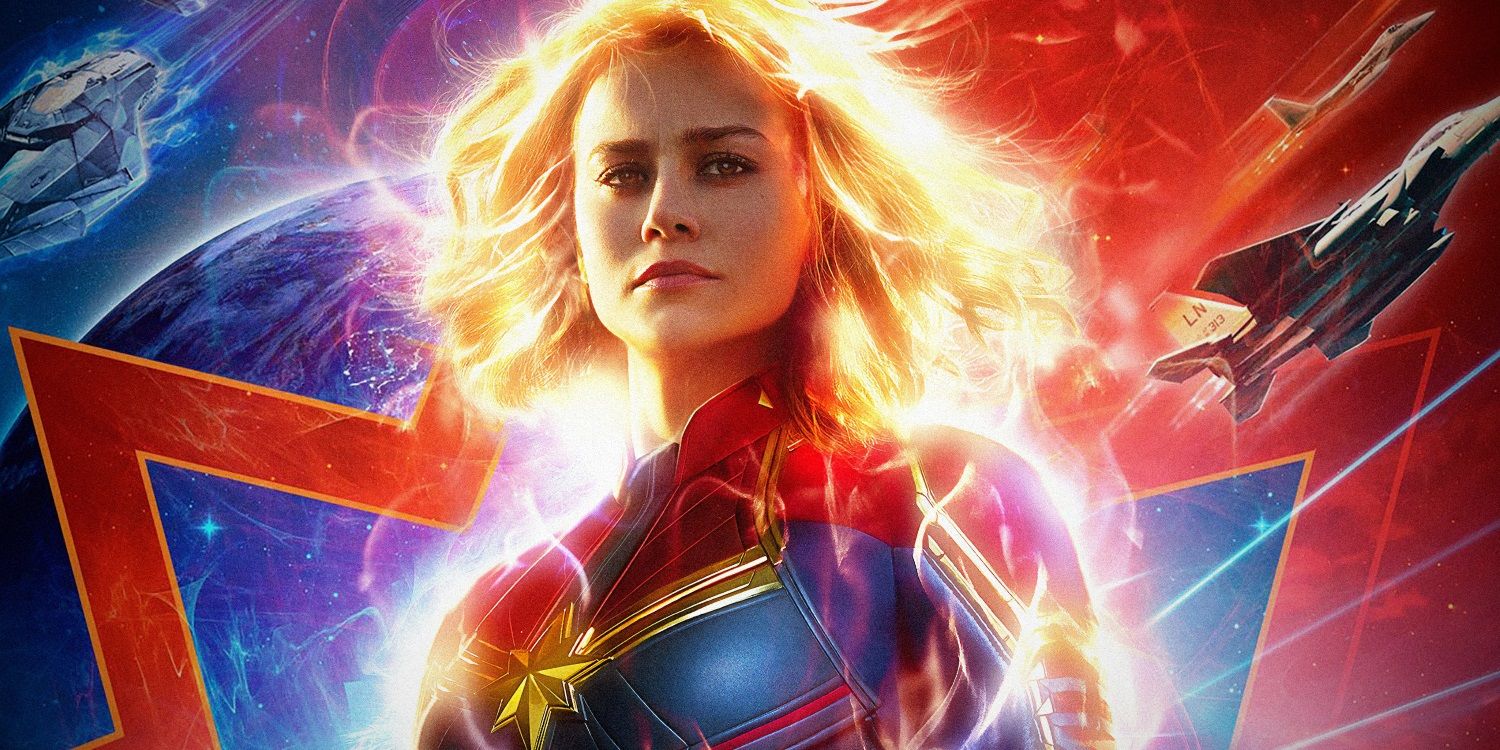While Marvel Studios has certainly earned massive critical acclaim and financial success, it's no secret they were a bit slow on the draw when it came to featuring women and minorities in leading roles. The prospect of a Black Widow movie languished in limbo for many years before the wheels finally started to turn for a Phase 4 release. While characters like Scarlet Witch and the aforementioned Black Widow are, indeed, mainstays in the Marvel Cinematic Universe, the fact that neither of them had received a bona fide "solo" film like Iron Man, Thor, and all the rest was nothing less than disappointing.
Fortunately, that era of the white male status quo is coming to an end. 2018's Black Panther completely upended box office expectations, going so far as to make more money at the North American box office than even Avengers: Infinity War. Meanwhile, 2019's Captain Marvel, the first MCU film headlined by a woman (Brie Larson as Carol Danvers), similarly crushed expectations, blasting well past a billion dollars at the worldwide box office.
During a panel at the ESPNW Women + Sports Summit in New York City, comic book writer Kelly Sue DeConnick and Marvel Studios Director of Production & Development Mary Livanos discussed the film and its profound global impact. After the eye-opening panel (which can be seen here), Screen Rant was able to steal some time with the two creators and discuss a variety of topics, from DeConnick's take on comic books as a medium, rather than a genre, to the etymology of the word "heroine."
What made you want to bring Captain Marvel to the ESPNW Summit?
Mary Livanos: Carol Danvers is a high-achieving woman who always wants to go higher, further, faster. It seems very much appropriate to bring Captain Marvel to an ESPN event. What was so great, seeing the movie come together, a large part of that was Brie and her conditioning in preparing for the role. She took it super seriously. She trained really hard and embodied all the values that Carol Danvers has, and embodied the sheer values of women in sports.
Kelly Sue DeConnick: And it's so funny that these are cultures that don't, on the outside, look like they obviously have a lot in common. We were talking about Air Force culture, and comic book culture, and athletics, but in fact, women in all three of these arenas have been not always made to feel incredibly welcome. It's also a place where we use the word "hero." We talk about our sports heroes, and comic book culture is all about heroes, right? And the Air Force, this is service and heroism. There's actually a lot, even though, from a ten thousand foot view, one might go, "these things are wildly different!" but no, there's a lot of the same fights happening. There's a lot of the same kind of persistent indomitable spirits in all three of those arenas.
I have a semantic question which I think relates to this; are we done with the word "heroine" in relation to female heroes? Is that word antiquated now?
Kelly Sue DeConnick: Oh, I don't know. I don't think so. I don't care if it's used. I haven't given it that much thought, to be frank with you. The word itself is not a problem for me. It depends on how we talk about people. If we're going to give awards for "best hero" and "best heroine," that seems silly to me. Putting women up against each other when the only thing they have in common is being women is always confusing to me. I don't like being put in pools of "who is your favorite female writer?" That always seems absurd. I don't feel the need to retire the term, though. I don't know, are people offended by it?
I don't know. In my writing, I've always used the word "hero." It's never been brought up to me, but I also only write "actor" instead of "actress."
Kelly Sue DeConnick: I'm of two minds about it. On the one hand, why is the traditionally male usage the gender neutral term? You know what I mean?
Absolutely.
Kelly Sue DeConnick: It feels as though, if we're going to do away with gender distinctions in language, then we should use a third term. Isn't that kind of just like going to the "he" term? That said, when I wrote Carol in the military, we used "Sir," even referring to the women. It was just a thing I liked. It's an interesting question.
I think I feel the same way. There are many ways of looking at it. I just wanted to pick your brain and get your take on that.
Kelly Sue DeConnick: It's probably a good sign for us, in general, that we're having this conversation. But I don't know that I feel particularly strongly about it.
Mary Livanos: I would feel strongly about it, maybe if there was an initiative to do away with the word "heroine." But letting them co-exist without having a problem with either is totally normal. I feel very neutral!
You mentioned the different cultures and the crossover and kinship with ESPNW. Comics have such a broad appeal, whether they're super hero stories, gritty crime tales, or bouncy cartoon sitcoms like Archie Comics. I wanted to ask you, as a writer of many different types of comic stories, are they all comics, whether they're super hero style or sitcom/domestic style, or whatever the term might be? Is that a distinction without a difference?
Kelly Sue DeConnick: Comics are a medium, not a genre. I am certainly not going to rank the different genres within comics. I think you like what you like. When people say to me, "I don't really like comic books," it's the weirdest thing in the world to me. It's like someone saying, "I don't like movies," or "I don't like books," or "I don't like stories." What that tells me is, you have no idea what you're talking about. You have an idea of what you think comics are, and no one has ever expanded your horizons, and I'm sorry for you... And I'm not going to force it on you, but if you're curious, the first one's free! (laughs) But we have comics in every genre. In this country, super heroes are the dominant genre, but even within that, there's an incredibly broad range. There's light, happy, funny, "blue sky" super hero comics. Then there's dark and gritty – Grrrrr – super hero comics. Then we have literary comics and so many... I did a fantasy surreal horror western comic. I do a feminist satire comic. It's just a medium for telling stories.
That's fantastic.
Kelly Sue DeConnick: There are incredibly well done super hero comics, and there are incredibly terrible super hero comics. There are incredibly well done independent comics, and there are incredibly garbage independent comics. It has nothing to do with the medium; it's how it's executed! Just in the same way, we have phenomenal films and we have garbage films. And look, if the garbage film is your favorite, go nuts! I'm not going to judge you! This world is too difficult for me to hate on you for what you like.
Mary Livanos: Comics have been mainstream, and they've been counter-culture, but really, they're for everyone. Anyone who wants to partake!
Kelly Sue DeConnick: It's the oldest storytelling medium. It literally goes back to Lascaux. Those sequential images to tell a story in a cave: that's comics. We're it, guys! This is lizard brain stuff!
As for Captain Marvel, I feel like I don't even need to say how much I loved the movie. When you were first writing your initial run on Carol, did you think that it would ever become a feature film?
Kelly Sue DeConnick: God no! Like I said on the panel, I literally did not think we'd get an issue #7. I was surprised when it became a trade. I was just happy to have a job! So, this is all cake.
Captain Marvel is available on Digital now and hits Blu-ray on June 11.





